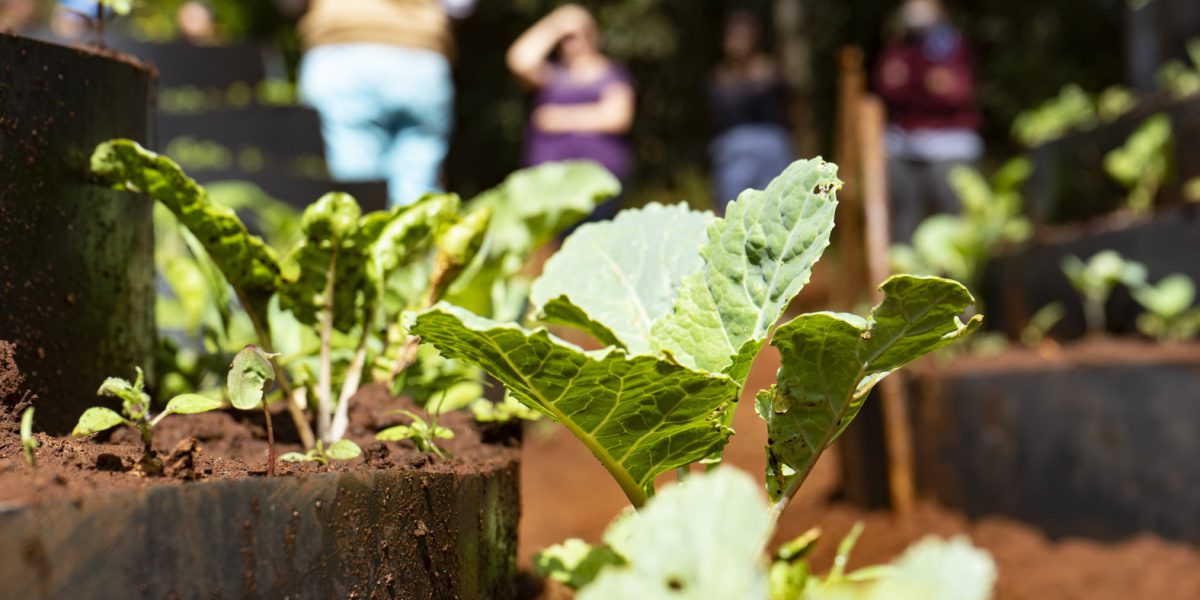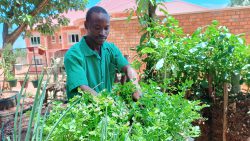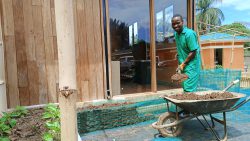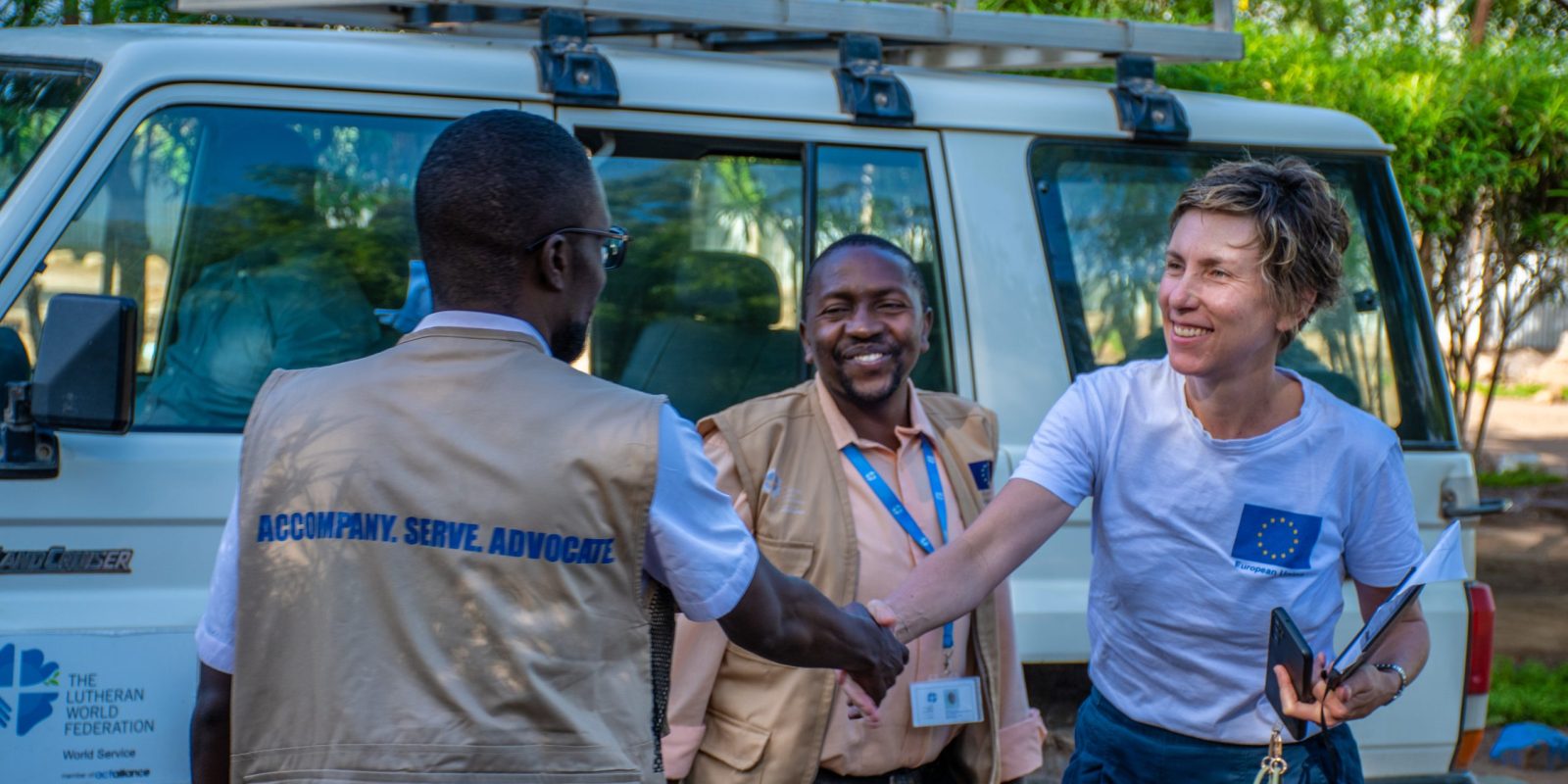Magical Gardens, Urban gardening in Kampala
10 June 2023|Rosette Komuhangi, Communications Officer JRS Uganda

This is not a story about beautiful, fantasy gardens with whimsical landscapes filled with myths, mysteries, and magic. It is a story about basic vegetable and fruit gardens for survival and big dreams to use them to solve global hunger problems. The magic is in the vision and ambition that David has for them.
David Munezero is a Rwandan asylum seeker in Uganda who is convinced that urban gardens might be simple, but they are a solution to fighting global hunger. David advocates for urban farming because he says it is beneficial to both households and institutions.
He started a backyard garden at the JRS office in Kampala in July 2022 where he grows assorted vegetables, fruits, spices, and herbs that he sells to staff, students, and the surrounding community.

David fled to Uganda in 2019 alone but has since married and got a daughter. Before coming to Uganda, David was studying Dental therapy.
In a bid to settle in, David visited the JRS office to get support. He was given basic support of rent for a few months, some food, and nonfood items. And for sustainability, David was encouraged to join the different skilling courses at JRS, an opportunity he quickly embraced since he was looking for ways to earn a living. He joined the Business Entrepreneurship Skills and Training course.
In this course, the facilitator encouraged them to start a business venture to utilize the skills learned. He decided to set up an urban farm using a very small space at his rented residence. David says he has always been fascinated by urban farming and read a lot about it. He also has basic training in crop growing/ Horticulture and beekeeping.
On one of the field visits by a JRS staff to his home, Heavens Lamaro was fascinated by what David had done with such a small space and the potential yield. She shared the idea with JRS management and requested them to give him a small lot in the office backyard where he can demonstrate what an urban farm looks like.
He was offered a small lot and a grant of UGX 1.2 million (approx. 320 USD). David took up the offer and has since not only demonstrated to fellow refugees and asylum seekers that come for training but has also made some money from the sales of his harvest.
David grows spinach, green peppers, kale, sukumawiki, cabbage, mint, celery, oregano, lemon grass, lemon balm, stevia, ginger, lettuce, broccoli, cauliflower, and harvests every week.

The farm flourished and JRS asked David to set up another garden in front of a new office block. According to John Mary Kisembo, JRS Kampala Project Director, the decision to have a farm instead of flowers and a lawn in front of the new office block is because management realized how beneficial it is to grow food instead of beautification plants. He also says that these urban farms work as demonstration sites for the learners that come to the JRS office.
David tends to the gardens with dedication because he says it is a dream come true for him. That this effort small as it might be is contributing to global food security, waste management, and poverty reduction. In his own words:
For Munezero, embracing urban farming is an opportunity to fight poverty because according to him, having grown up in a poor family he has to work hard to get out of it.
He says:
‘I realized that we are poor because we fail to embrace business opportunities that present themselves. This means not identifying a service or product that is lacking on the market. But now that I have identified a need for my urban farm skills, I will work hard to market my services till I get a return from it. And consequently, improve my financial status.’
He plans to establish a social enterprise that will train others in urban farming and beekeeping as well as produce products from these two for sale. And he believes that in 10 years he will be a billionaire! David has so far, been contracted by four individuals and one primary school to set up backyard gardens.
David is convinced that if everyone could embrace these small dynamic magical gardens, they will have solved hunger issues in their homes and collectively on the planet.



